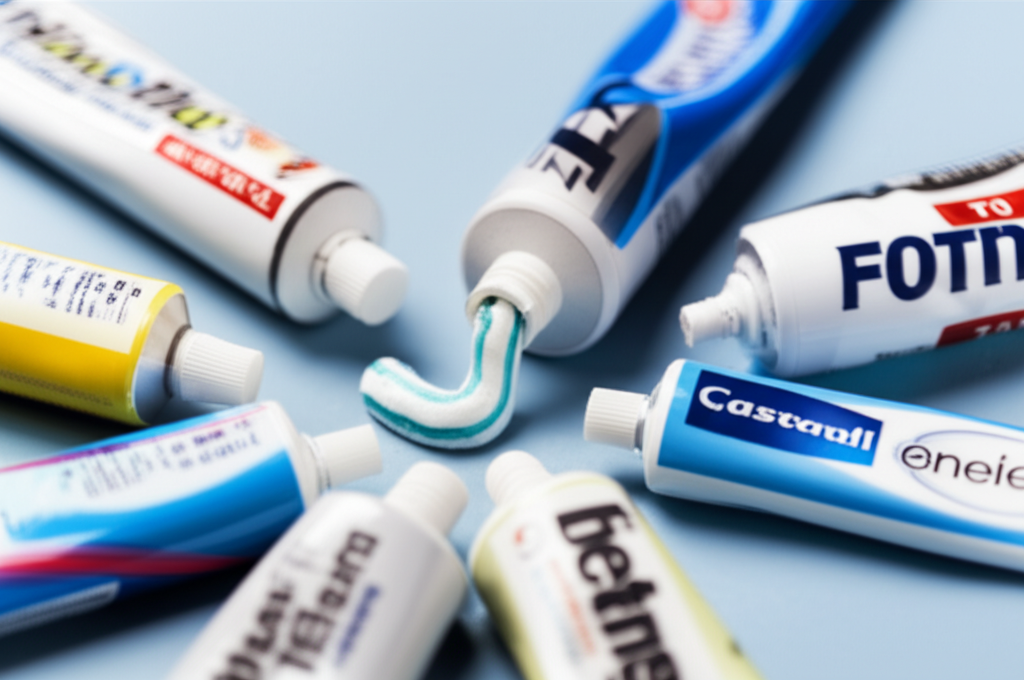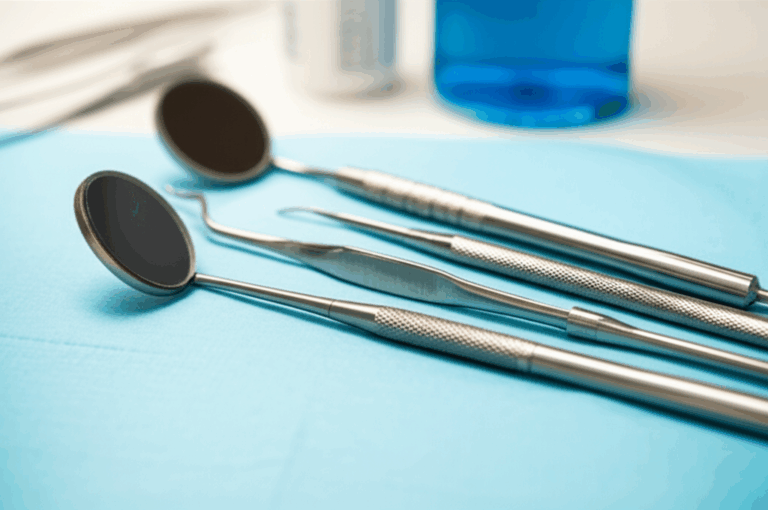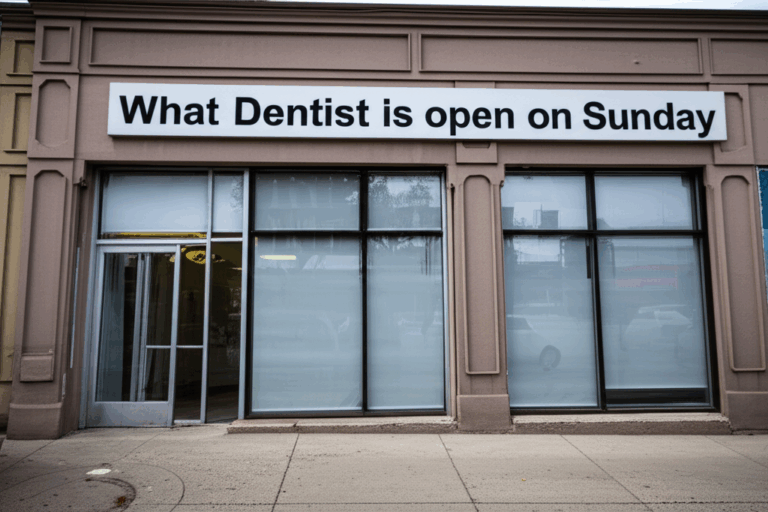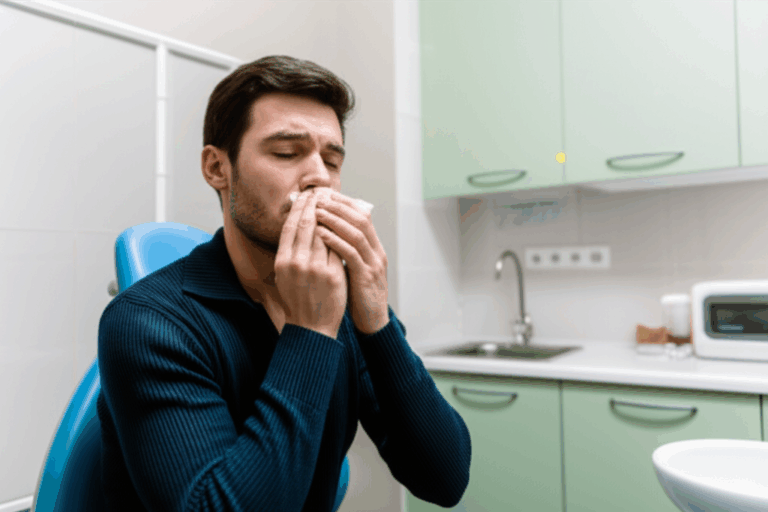
What Toothpaste Do Dentists Really Use & Recommend? The Professional’s Guide to Oral Health
It’s one of the most common questions people ask their dentist, sometimes hoping for a secret trick—“What toothpaste do you use at home?” Maybe you’ve looked at all those boxes in the store and wondered if there’s a special “dentist toothpaste” hiding out of sight. Or you just want someone to tell you the truth about what actually works.
It’s a fair question. Who wouldn’t want a shortcut to a healthier, brighter smile—the kind you think your dentist must know how to get? You’re not alone. Most people find toothpaste choices confusing at some point. And you want real answers, not just an ad.
In this guide, think of me as your friendly, honest health helper. I’ll show you what dentists really look for in toothpaste for themselves and their patients. We’ll clear up the “secrets,” shake off some common wrong ideas, and give you simple, true facts for taking care of your teeth.
In This Article
- What Makes Dentists Trust a Toothpaste? The Real Priorities
- The Toothpaste Brands and Types Dentists Recommend—And Why
- Common Mistakes: Toothpastes and Ingredients Dentists Warn You About
- Beyond the Tube: How Dentists Really Choose (and Use) Toothpaste
- A Simple, Step-by-Step Guide to Picking the Right Toothpaste for You
- Your Healthiest Smile: Key Takeaways
What Makes Dentists Trust a Toothpaste? The Real Priorities
Let’s get right to it. Dentists don’t have a special “dentist only” toothpaste. But they do look for certain things in any tube they use, both for themselves and patients. They use what they know from their training and lots of science.
Fluoride: The Main Player for Stopping Cavities
If there’s one thing dentists always agree on, it’s fluoride. Almost every dentist—over 90%, according to the Journal of Dental Hygiene—tells people that fluoride toothpaste is the best way to keep cavities away and make teeth stronger.
Why is fluoride so important?
Think of fluoride as a shield. Your enamel—the hard outer layer of your teeth—gets hurt by acids from food and drinks. If these acids win, your enamel gets weak and you get cavities. Fluoride puts important minerals back into your teeth, making that outer layer harder and tougher against damage.
- Types of fluoride: You’ll often see sodium fluoride or stannous fluoride on the box. Both protect your teeth, but stannous fluoride also helps fight bacteria and with sensitivity.
- ADA Seal of Acceptance: If you see this seal, it means the American Dental Association (ADA) has checked and approved the toothpaste for safety and that it works. Dentists trust this sign above all others.
Helping with Special Dental Needs
Dentists don’t just pick any tube. They look for ingredients that solve real problems—their own or yours.
- Sensitive teeth: If you flinch when you eat ice cream, dentists like toothpaste with potassium nitrate or stannous fluoride. These block signals that make your teeth feel pain.
- Gum problems: Toothpastes with stannous fluoride, zinc citrate, or other germ fighters help control germs in your mouth and lower the chance of gum disease.
- Plaque and tartar: Brushing and flossing matters most, but toothpaste with anti-germ parts and safe scrubbing grains can help more.
- Enamel strength: If your enamel is getting thin—maybe from lots of soda or acid reflux—dentists pick gentle toothpastes with stuff like calcium phosphate to rebuild teeth.
Good Cleaning—Without Damaging Your Teeth
Ever want super-white teeth right away? Dentists see those ads, too, but they pay attention to how toothpaste really works.
- Abrasiveness: Some toothpastes have rough scrubbers to remove stains. A little is good, but too much can wear down your enamel. Dentists like toothpastes that clean well but won’t scratch your teeth.
- Harsh ingredients: Sodium lauryl sulfate (SLS) makes toothpaste foam but can bother some mouths. For people who get canker sores or have sensitive gums, dentists suggest SLS-free toothpaste.
Bottom line: Dentists do their homework when choosing toothpaste. They want proof it works, safe ingredients, and the right fit for real needs.
The Toothpaste Brands and Types Dentists Recommend—And Why
Let’s look at some real brands and types dentists often use themselves and tell others to use. There’s no secret “dentist toothpaste”—these are in every store, well made, and backed by science.
For Cavity Prevention and Everyday Care
- Colgate Total: This one is at the top for many dentists. It has stannous fluoride, which stops cavities, fights germs, and helps gums. It has the ADA seal and research to back it up.
- Crest Pro-Health: Also uses stannous fluoride and has ADA’s OK. It fights cavities, gum problems, and even helps with sensitivity.
- Aquafresh, Arm & Hammer Essentials: Both are good fluoride choices. Arm & Hammer uses baking soda, which is a safe mild scrubber.
For Sensitive Teeth
- Sensodyne: Dentists mention this a lot in the dental field and in what patients say helps. There are different choices—“Rapid Relief” uses stannous fluoride, while “Repair & Protect” adds something called Novamin for sensitive spots.
- Pronamel by Sensodyne: Made for people with acid-worn teeth. It’s gentle and dentist-approved.
- Colgate Sensitive: Another favorite for people with sensitive teeth.
For Gum Health
- Parodontax: Made for people with gum bleeding or issues, using stannous fluoride to help fight germs.
- Crest Gum Detoxify: This line focuses on bacteria near the gums—where gum disease often starts.
- Colgate Total (again): Good for both everyday use and helping gums.
For Whitening (Be Careful!)
- Crest 3D White, Opalescence, and other strong whitening toothpastes: Some at-home toothpastes remove stains safely, but real whitening that lasts often needs a dentist’s help. Using these too much or using very rough ones can make teeth sensitive or thin.
- Dentists say to use these types sometimes, not every day, unless they tell you it’s okay.
Tip: If you really want whiter teeth, ask your dentist. Things like trays or office treatments work much better and are safer than regular toothpaste.
Common Mistakes: Toothpastes and Ingredients Dentists Warn You About
With so many choices, it’s easy to pick something dentists worry about. Here’s what many suggest skipping or using very carefully.
Unproven “Natural” or Herbal Toothpastes
Natural or herbal toothpaste can sound nice, but lots are missing the main hero—fluoride. Natural doesn’t always mean better, and many times, these don’t have the ADA seal or real proof they help your teeth.
- No fluoride: You’re missing out on the best thing to fight cavities.
- Harsh scrubbing: Some use things like charcoal, shells, or salt which are too rough and can scratch your teeth.
Charcoal Toothpaste
Charcoal in toothpaste is trendy, but more than 95% of dentists say there’s no real proof it helps, says the Journal of the American Dental Association. Worse, it’s very rough and can wear away your enamel.
Very Rough (“Whitening”) Toothpastes
Wanting whiter teeth is normal. But toothpastes that promise it right away often scratch off stains—and your enamel too. Dentists see people with thin enamel who use these too much and warn you to be careful.
Fluoride-Free Toothpaste (for Most Adults)
Some people avoid fluoride because of things they read online, but almost all dentists say if you don’t have a health reason to skip fluoride, don’t avoid it. It works too well to give up. If you have a rare allergy, ask your dentist first.
Beyond the Tube: How Dentists Really Choose (and Use) Toothpaste
It’s easy to think all dental care is about finding the “best” toothpaste. But here’s what the pros know: What works best is a mix of proof, your own needs, and being steady with good habits.
Dentists Have Dental Problems, Too
Dentists get cavities and sensitive areas just like you. They pick toothpaste for their own needs—one might need help with sensitivity, another is fighting gum troubles, another wants to keep stains away.
They Trust Proof, Not Flashy Ads
Big brands and celebrity spokespeople don’t impress most dentists. They look at research, medical journals, and what the ADA backs up. If a toothpaste gets their advice, it’s because real studies checked that it works.
- Fun fact: Dentists stay up-to-date from groups and journals, so their advice can change if new science says so.
They Listen to Patients
Dentists don’t just give out samples—they want to know if something helps you. If a patient says a toothpaste truly helps (less bleeding, less pain), that matters. It shapes what they might suggest for others.
What Matters Most is Habit
Even the fanciest toothpaste won’t help if you don’t use it. Dentists care more about steady brushing (twice a day for two minutes), careful flossing, and regular dental visits. The “perfect” toothpaste is only as good as your habits.
A Simple, Step-by-Step Guide to Picking the Right Toothpaste for You
Standing in front of all those boxes, you can feel stuck. Here’s an easy guide to help you make a good pick.
1. Think About Your Biggest Need
Before you even look at the brands, ask yourself:
- Do you get lots of cavities?
- Are your teeth easily bothered by hot or cold?
- Are your gums bleeding or sore?
- Is bad breath a problem?
- Do you want gentle whitening?
Knowing your main problem helps a lot.
2. Look for the ADA Seal
This is your main proof a toothpaste is safe and works well. If you don’t see it, keep looking.
3. Make Sure It Has Fluoride
If your dentist hasn’t told you to avoid fluoride, always pick a toothpaste with it. It’s the best shield your teeth can have.
4. Check the Ingredients
- For sensitive teeth, look for potassium nitrate or stannous fluoride.
- For gums, check for anti-germ ingredients like stannous fluoride or zinc.
- For whitening, don’t pick anything super harsh—ADA-tested whitening toothpastes are better, or ask your dentist for options.
- For dry mouth, pick alcohol-free, gentle toothpastes, or ones with xylitol, which helps make more spit.
5. Don’t Make It Too Complicated
If you have healthy teeth with no problems, a plain fluoride toothpaste from a trusted brand is all you need. Don’t let fancy boxes or wild promises trick you into spending more when you don’t have to.
6. Ask Your Dentist for Tips
Sometimes you need special help. If you have crowns, bridges, braces, or dental work, or health problems like diabetes or very dry mouth, your dentist can tell you the best choice—sometimes even a prescription toothpaste.
And remember, dental health isn’t just about your toothpaste. If you have things like crowns, bridges, or veneers, what you use and how you brush can help them last. For these, your dentist may also work with a crown and bridge lab to get the best results for how your teeth work and look.
Your Healthiest Smile: Key Takeaways
Here’s a simple summary to remember (and to tell a friend):
- Fluoride is a must for almost everybody. Unless your dentist says otherwise, it’s your best way to stop cavities.
- Look for the ADA Seal. This means the toothpaste is safe and does what it promises.
- Pick what you need: Whether you have sensitive teeth, gum worries, or want whiter teeth, there’s a toothpaste for you.
- Skip the hype. Toothpastes with words like “natural,” charcoal, or ones that feel really rough may hurt more than help—and often have no real proof they work.
- Consistency wins. Your toothpaste only works if you use it right, brush and floss every day, and see the dentist sometimes.
Ready to take action?
If it’s been a while since you saw your dentist, book a visit. Bring your toothpaste with you if you’re not sure about it—they’ll be glad to check it with you. Everyone’s mouth is different, so getting real advice is smart.
And don’t forget: Great oral health isn’t a solo job. It’s about your daily care and what your dentist can do to help, sometimes with special dental labs for things like zirconia or Emax crowns. If you’re interested, you can learn how these labs work with your dentist to keep your teeth looking and working their best.
A healthy, bright smile starts with picking a smart toothpaste and asking questions when you need to. Trust science, trust your dentist, and most of all—trust yourself to make a few simple steps part of your daily routine for teeth that last a lifetime.
Frequently Asked Questions
Is there really a “dentists only” toothpaste?
No! Dentists use many of the same brands and types found at the store—they just pick carefully based on what’s proven, what’s safe, and what works for their needs. Sometimes they prescribe special toothpaste, but that’s only for some health conditions.
Is expensive toothpaste always better?
No. A big price tag doesn’t make it work better. The ADA seal and fluoride matter much more than the box or a fancy ad.
I have a crown, bridge, or veneer. What toothpaste should I use?
Use fluoride, and go with something not-too-abrasive to protect your teeth and any dental work. If you had work done with a dental ceramics lab, your dentist can tell you how to care for it.
Do natural or charcoal toothpastes actually work?
Most do not have fluoride and some can scratch your teeth. Dentists hardly ever suggest them.
Your best smile isn’t about buying special toothpaste—it’s about using what’s proven, brushing every day, and working with your dentist as a team. You can do this!








